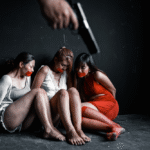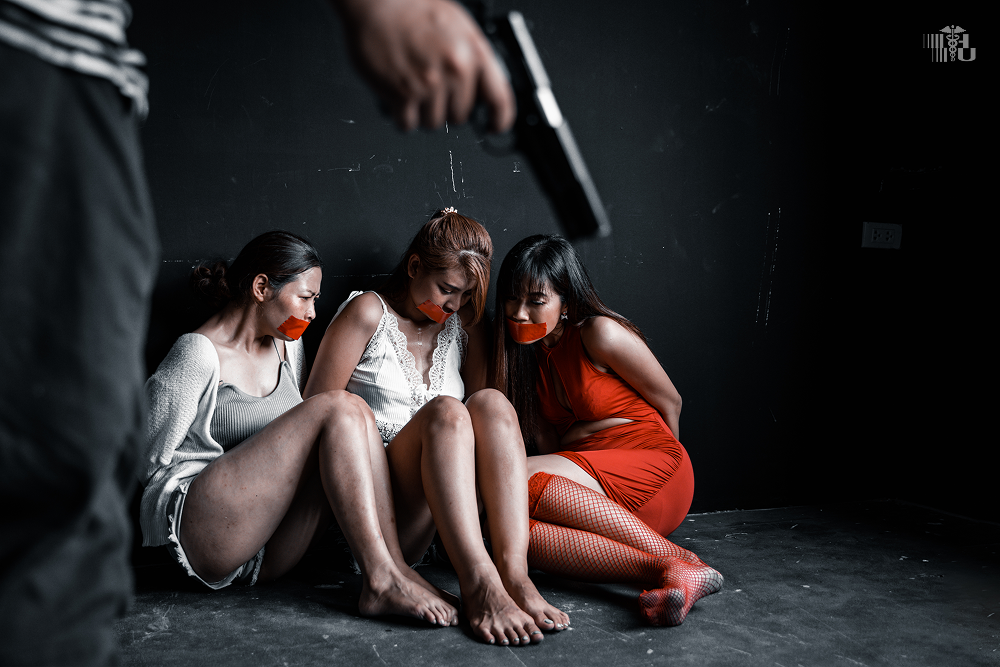In the shimmering glow of Florida’s endless summer, shadows gather in places few tourists ever see. Here, among the gentle surf and swaying palms, a hidden world persists where hope is fragile, and Trauma runs deep. The story of human trafficking in Florida is not just about numbers or headlines; it’s the day-to-day reality for many and the quiet strength of those charting their way out of darkness.
Beneath the Surface: Florida’s Unique Landscape
Florida is a patchwork of contrasts a place of dream vacations, new starts, and diversity. However, the same energy that draws millions each year also creates unique vulnerabilities. Its sprawling highways, major airports, lively theme parks, and robust agricultural and tourism industries, while fueling growth, likewise make it a prime target for traffickers. According to groundbreaking research, it’s estimated that over 700,000 people in Florida were trafficked last year alone: 500,000 for labor and 200,000 for sex trafficking, with minors making up half of all sex trafficking victims and one in four labor victims.
Harmony United Psychiatric Care is a premier mental health clinic serving communities across Florida.
Find a provider near you
Stories Beyond the Statistics
Behind such daunting figures are stories like Ava’s. She was barely in her teens when she met someone who promised escape from family violence and hunger a connection that turned into captivity. The promises faded quickly: Instead of safety, she encountered a cycle of abuse and control, locked away in hotel rooms, her freedom vanished.
Stories like Ava’s are heartbreakingly common, not just in cities like Miami and Tampa but in small towns along lonely highways. Some are lured by love, some by jobs they’ll never see. Many victims were already vulnerable: living in foster care, facing instability at home, or simply searching for acceptance in a world that too often ignores their struggle.
Trauma: More Than Skin-Deep
Survivors carry invisible wounds that outlast any physical escape. Many are haunted by nightmares, flashbacks, and panic that invade even the safest moments. Depression, Anxiety, Flashbacks, and a crushing sense of shame often linger long after rescue. For some, drugs and alcohol become both a tool of their captors and a numbing agent against pain. Others withdraw, haunted by confusion, guilt, or the belief that no one can be trusted.
Children and adolescents, in particular, struggle with emotional regulation and attachment, sometimes finding simple tasks such as trusting, learning, or building relationships painfully out of reach. Suicidal thoughts haunt many; studies reveal disproportionately high rates of self-harm among trafficking survivors.
The body, too, bears the mark: insomnia, chronic pain, headaches, digestive issues, and other stress-related disorders are common. Medical neglect, injuries, and malnutrition often accompany these psychological scars, making healing a multilayered battle.
Paths to Survival and Recovery
Everyone’s journey back is distinct, but what unites survivors is resilience. Some, like Carmen, find hope through outreach initiatives and shelters. Programs such as those at Miami’s THRIVE Clinic wrap survivors in a net of trauma-informed care: Mental Health Counseling, medical support, and legal aid, all focused on restoring autonomy and safety. The process can take years but is buoyed by dedicated counselors, advocates, and, crucially, fellow survivors.
Organizations like the BRIGHT Network and local anti-trafficking coalitions connect survivors to housing, education, and skills-building, ensuring they are not alone in rebuilding their lives. Trauma-focused therapies, including CBT and expressive art, help survivors process and frame their stories on their own terms.
But most essential of all are safe relationships and patient support places where the wounds of betrayal can begin to heal, and new trust can emerge.
Communities Rising Up
While Florida’s anti-trafficking policies are among the harshest in the United States, the challenge is vast and ongoing. State and local authorities have ramped up prosecutions, increased penalties, and launched innovative prevention programs. Still, it is often the alert teacher, an attentive nurse, or a concerned neighbor who first notices urgent signs: unexplained absences, fearfulness, physical injuries, or unusual control by others.
Prevention comes alive in classrooms, clinics, and community meeting places where awareness, compassion, and vigilance are woven into everyday life. Simple actions like speaking up or offering a lifeline can disrupt cycles of abuse and exploitation.
The Power of Voices
Survivors’ insights are essential in reshaping services and dismantling stigma. Their voices cut through statistics, reminding the world that trafficking is not just a crime, it is a personal devastation, and makes every act of support and kindness matter. Legal assistance, advocacy, art, and education all contribute to recovery, but so does understanding, belief, and the opportunity to start anew.
Hope Among the Ruins
The story of human trafficking in Florida is one of hidden suffering but also one of hope. Each time a survivor finds healing each time a voice is heard or a life rebuilt, the darkness recedes a little. Together, communities, professionals, and survivors themselves form the network required to transform pain into resilience and invisible wounds into new beginnings.
This is how Florida’s tale continues, not painted only by trauma but woven through with resolve: proof that beneath the sunlit promise, compassion and commitment can help even the deepest scars begin to fade.
Harmony United Psychiatric Care, with locations across Florida, is a leading mental health clinic that provides trusted psychiatric care tailored to your specific needs. To get personalized and secure solutions for your mental health conditions, like stress, anxiety, depression, bipolar disorders, ptsd, ocd, and eating disorders. We understand your psychological problems, which is why we provide telepsychiatry services to ensure your privacy and security.
For more information about mental health conditions, visit our Mental Health Library page. To understand and cope with your major depressive disorder symptoms, get help from our top psychiatrists, psychologists, and therapists, who are known for providing the best Psychological health treatment and psychiatry services. To book an appointment, please call us at (800) 457-4573 or submit an appointment request.
FAQs
-
What is human trafficking in Florida?
Human trafficking in Florida involves individuals being manipulated or compelled through violence, deception, or intimidation to work or engage in sexual activities against their will. The state’s vibrant tourism industry, expansive farmlands, and vast network of highways and airports make it especially attractive to traffickers searching for vulnerable people to exploit.
-
How common is human trafficking in Florida?
Recent findings reveal that in the past year alone, Florida saw more than 700,000 individuals ensnared in trafficking schemes—approximately 500,000 exploited for labor and another 200,000 for sexual purposes. Alarmingly, children and teenagers are hit hardest, with minors representing half of those exploited for sex, and accounting for one out of every four cases in labor trafficking.
-
What are typical vulnerabilities that traffickers exploit?
People grappling with domestic abuse, unstable housing, financial hardship, uncertain foster care arrangements, or immigration issues are often chosen by traffickers. Loneliness and a longing for belonging make these individuals even more susceptible to exploitation.
-
What psychological effects do trafficking survivors experience?
Those who escape trafficking often grapple with lasting mental health challenges such as post-traumatic stress, ongoing anxiety, deep sadness, recurring nightmares, and feelings of guilt. Young survivors, in particular, may find it difficult to form trusting relationships, manage their emotions, and are at greater risk for self-injury and thoughts of suicide.
-
How does trafficking affect physical health?
Survivors frequently experience physical ailments, including difficulty sleeping, persistent pain, stomach problems, and headaches, all linked to the intense stress they’ve endured. Many also face the consequences of inadequate medical care and poor nutrition resulting from their exploitation.
-
What types of support are available to survivors in Florida?
Available resources encompass trauma-sensitive therapy, safe housing, legal assistance, medical care, and programs focused on education and skill development, such as those offered by the THRIVE Clinic and BRIGHT Network. Essential to healing are community support groups and active outreach efforts that help survivors rebuild their lives.
-
What therapies are proven to help survivors of trafficking?
Therapies centered on trauma recovery, including Cognitive Behavioral Therapy (CBT), Eye Movement Desensitization and Reprocessing (EMDR), and expressive arts therapies, have proven beneficial for numerous survivors by aiding them in processing their past and restoring trust.
-
How do traffickers control their victims?
Traffickers maintain dominance over their victims through tactics such as deception, social isolation, intimidation, forced drug or alcohol use, and at times, physical abuse. The mental and emotional control exerted can be just as strong as any physical confinement.
-
What can communities do to prevent trafficking?
Active community awareness, educational efforts, empathy, and strong support systems play a vital role in combating trafficking. Effective prevention involves spreading knowledge in schools, healthcare settings, and religious organizations, while empowering individuals to recognize and report signs of trafficking.
Reference Links:
https://www.floridahealth.gov/programs-and-services/prevention/human-trafficking/index.html
https://pmc.ncbi.nlm.nih.gov/articles/PMC5227932/
https://med.miami.edu/departments/obgyn/divisions/research/survivors-of-human-trafficking
https://www.ice.gov/features/human-trafficking-victim-shares-story



Leave a Reply